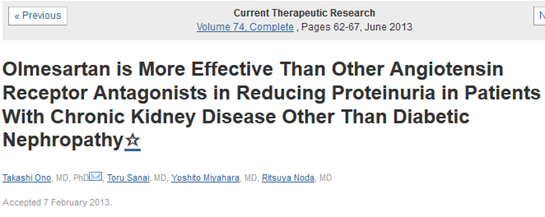Every day we get tweeted by Elsevier about their wonderful #openaccess offerings. One of the latest pointed to: http://www.elsevier.com/about/open-access/open-access-journals. I chose http://www.journals.elsevier.com/applied-and-translational-genomics/ to see how this worked. Note licences are discussed under http://www.elsevier.com/journals/applied-and-translational-genomics/2212-0661/guide-for-authors where they offer CC-BY, CC-BY-NC-SA and CC-BY-NC-ND. So off to a paper:
At the bottom of the masthead is:
No apparent licence: © Copyright 2013 Elsevier B.V., All rights reserved.
Try another: http://www.sciencedirect.com/science/article/pii/S2212066113000100
No apparent licence: Copyright © 2013 Elsevier B.V. All rights reserved
I’m getting a pattern… http://www.scopus.com/record/display.url?eid=2-s2.0-84870059904&origin=inward&txGid=E44AFAA8EF9CA0D9F1B2E070F4506CC1.WlW7NKKC52nnQNxjqAQrlA%3a11
(This one is 8 months ago so no excuse they “haven’t quite got round to it”).
No apparent licence: © Copyright 2012 Elsevier B.V., All rights reserved.
So very simply, Elsevier don’t seem care very much about honouring agreements they make with authors and/or they aren’t very competent at publishing. If you take 3000USD of someone and contract to apply one of three licences then you have a legal requirement to do so.
Let’s try a different journal: http://www.journals.elsevier.com/current-therapeutic-research/

And one of their featured articles

We’ll take 2:
http://www.currenttherapeuticres.com/article/S0011-393X%2813%2900009-X/abstract

Published this year, so after the journal was made Open Access. I scroll down and…
So in Elsevier’s new trumpeted Open Access journals, they not only take high APCs but also put the papers behind paywalls.
Oh, I spoke too soon:

CC-BY, but I have to pay to read it. And CC-BY with “All rights reserved”??
In some market sectors this would be criminal negligence, but because it’s scholarly publishing who cares that Elsevier is […]?
The crucial screenshot got lost – it says
Purchase this article for 31.50 USD (You must login/register to purchase this article)
Online access for 24 hours. The PDF version can be downloaded as your permanent record.
Verify it for yourself
Can confirm that. Every attempt to access this CC-BY article stops at a paywall. As an author, I would be livid if I had paid for that.
Thanks
I was able to access the full text of this article, either by clicking on the “Full Text” tab, or via ScienceDirect. I was also able to download the PDF. I did this from home, without the help of my University Library.
However, how can CC-BY be compatible with “Copyright © 2013 The Authors. Published by Elsevier Inc. All rights reserved.”?
Elsevier have changed things since I blogged.
Did you see the paywall? and did you click it? I am not saying it was impossible to get the article but it would have been possible for people to pay by mistake.
I neglected to answer this question earlier. No, I didn’t encounter a paywall. (But, I didn’t look for one).
Dear Peter,
Thank you for pointing out these concerns. It’s a good thing to have someone so focused on pointing issues out for us, though the immediate assumption of the worst is not entirely helpful. As you know the infrastructure underpinning publishing is considerable, and has evolved over a very long period of time with the scholarly communication system itself. We readily acknowledged the large scale of change and investment in this infrastructure that is required to support new open access business models, and we readily acknowledge that systems issues are inevitable. We have teams in place proactively planning system enhancements, and we work hard to repair errors as they occur. Nevertheless, it is useful to be alerted to problems and concerns so that we are able to address these.
As I mentioned to you on twitter, we have investigated the various issues you raised and have found different problems behind each. In this first response I can provide you and your readers with an update on the last issue you raised. Using this article as an example – http://www.currenttherapeuticres.com/article/S0011-393X%2813%2900009-X/abstract – you expressed concern that we are systematically charging PPV fees for open access articles. This is not the case. Our investigations show that this article is correctly displaying as an open access article on our ScienceDirect platform, but not on our Health Advance platform. Thank you for alerting us to this – the Health Advance team is currently working to correct this and to understand why the correct settings were not picked up for this article.
More soon on your other points, and with kind wishes –
Alicia Wise
Director of Universal Access
@wisealic
J Beall may call Elsevier “predatory open access publisher”. Oh! I forgot that Beall is ready to give infinnite number of chances to giant publishers for their errors. Small OA publishers should not get a chance. Long live Elsevier and Beall.
from
A Khan
India
He has identified a real problem, but it’s currently very small and the problems of legacy publishers like Elsevier are much more serious.
And just to confirm… the article is now open-access at: http://www.currenttherapeuticres.com/article/S0011-393X(13)00009-X/fulltext
With kind wishes,
Alicia Wise
Director of Universal Access
@wisealic
No explanation yet about how CC-BY can be compatible with “Copyright © 2013 The Authors. Published by Elsevier Inc. All rights reserved”.
The copyright can still reside with the authors, but the ‘All rights reserved’ is wrong.
Yes, it is wrong. It should be trivial to remove so it is a test of Elsevier’s commitment to quality and rapid action.
No, you are correct. I assume that Elsevier’s Director of Universal Access will reply soon, or I will chase it it publicly.
Dear Peter,
The other issue you raise relates to the clarity of labelling of articles as open access, and the clarity of labelling the license terms under which these articles are available. Over the past year, we have been working to upgrade our core metadata management systems to ensure that we have a central, consistent overview of all of our open access content. These developments are now complete and in coming months, we will be working to integrate the new metadata across our large number of platforms and back office systems.
ScienceDirect will be the first product to benefit from the new metadata, and with the next release (coming soon) there will be improvements in how open access content is labelled on ScienceDirect. In fully open access journals a “Open Access” text label will appear below the journal title on articles. In hybrid open access journals this “Open Access” text label will appear below the article title. For the licensing terms, as you know, we have offered authors a choice of licenses since April 2013. For these articles our production systems have the relevant metadata to signal which license (e.g. CC-BY, CC-BY-NC-SA, CC-BY-NC-ND) applies to the article and this information will be more visible in the next release. We are investigating how to populate this license metadata information for older open access articles.
Roll out to our products and services will continue through the remainder or 2013 and into 2014. While this is very much a work in progress, it is one we take very seriously indeed and are determined to get right.
With very kind wishes,
Alicia Wise
Director of Universal Access
Elsevier
@wisealic
You have not fixed one of the problems I reported:
The following paper was in the list of journals that you announced were open access: http://www.scopus.com/record/display.url?eid=2-s2.0-84870059904&origin=inward&txGid=E44AFAA8EF9CA0D9F1B2E070F4506CC1.WlW7NKKC52nnQNxjqAQrlA%3a11
I have revisited it now 2013-08-16:1420
and still find :
(A) it gives metadata only
(B) a subscription is required to read it.
My analysis if that you have not fixed this problem and that, according to your reply it will not be fixed until 2014. I therefore conclude that Elsevier intends to continue charging for #openaccess papers until some months hence, probably 2014.
If you disagree with this analysis please let me know asap so my blog will be correct.
Sincerely
Hi Alice,
Its great to hear that Elsevier are addressing these issues. Rather than just relying on Peters’ blog (no offence Peter!) can we get a comprehensive message to the customer base, either via a circular email or message on the SD website or librarian login page.
Its the first I’ve heard of A) these issues and B) the cause.
Best
Ed
It shows clearly that we need a regulator and – I am afraid – that the University libraries should have developed a quality checking system and challenged quality rather than waiting for someone else (me) to do it.
we should give time to Elsevier up to 2014 to make a Open access article really Open acess. Elsevier is the biggest publisher of the world with huge resources. Therefore Elsevier should get more time. please everybody understanf it. OA is realy unwanted baby of Elsevier. it must be neglected.
Nice story… did you try to contact the authors of the paper? As an author, I would sue them. It would probably make elsevier realize one cannot make such BIG mistakes without paying the consequences.
Is somebody taking snapshot of these errors, I mean legally usable snapshots of what they do? Or maybe somebody could buy one article which is open access and then go to court? (going the american way…)
It is so unprofessional. Being big is not an excuse, on the contrary.
Interesting idea,
the problem is that we don’t KNOW the articles are OA. They may be closed and the pointer to them is false.
And would authors sue? I doubt it.
Recall Elsevier offers authors the choice of CC licence applied to the work, and in many cases charges different rates for different licences.